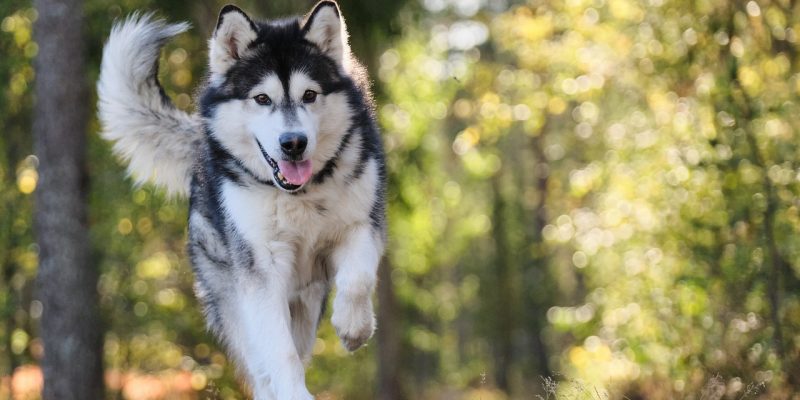Are you looking to add a furry friend to your family? Look no further! In this article, we will introduce you to 10 amazing and cute animals that you can adopt. These adorable creatures not only make great pets but are also available for adoption. Whether you’re a dog lover or a cat person, there’s a perfect companion waiting for you.
Let’s start with the dogs. Known for their loyalty and affectionate nature, dogs are a popular choice for pet owners. From small and energetic breeds like the Jack Russell Terrier to larger and more laid-back breeds like the Golden Retriever, you’ll find a dog that suits your family’s lifestyle.
If cats are more your style, we’ve got you covered. Cats are known for their unique personalities and independent nature. Whether you prefer a playful and sociable cat or a more aloof and independent one, there’s a breed out there that will match your preferences.
And let’s not forget about the kittens. These tiny bundles of joy are irresistible. However, raising a kitten comes with its own set of challenges. In this article, we’ll provide you with tips on how to care for a kitten and ensure they grow up to be happy and healthy adult cats.
Looking for a more mature companion? Consider adopting a senior pet. Older animals can bring love and companionship to your home, and they often have a calmer temperament. We’ll discuss the benefits of adopting an older animal and provide you with information on how to care for them.
Now, let’s hop over to the world of rabbits. Rabbits make great pets, and they have their own unique needs and characteristics. Whether you’re interested in having a house rabbit or an outdoor rabbit, we’ll provide you with tips on how to create a safe and enriching environment for these adorable creatures.
Lastly, we have guinea pigs and hamsters. Guinea pigs are charming pets with their own set of behaviors and care needs. We’ll guide you on how to properly handle and interact with your guinea pig and provide tips on maintaining their health and wellness.
Hamsters, on the other hand, are small rodents that require a suitable habitat to thrive. We’ll help you choose the right type of hamster for your lifestyle and provide guidance on setting up a comfortable and stimulating habitat for them.
So, whether you’re interested in dogs, cats, kittens, senior pets, rabbits, guinea pigs, or hamsters, there’s an amazing and cute animal waiting to be adopted. These furry friends will bring joy and companionship to your home. Stay tuned as we dive deeper into each category and provide you with all the information you need to make an informed decision.
Dogs
When it comes to finding a loyal and affectionate companion, dogs are the perfect choice. With their unwavering loyalty and loving nature, they can bring immense joy and happiness to any family. However, with so many different dog breeds to choose from, it can be overwhelming to decide which one is right for you.
When considering adopting a dog, it’s important to research different breeds and understand their characteristics and needs. Some breeds are known for their high energy levels and require plenty of exercise, while others are more laid-back and enjoy a cozy cuddle on the couch. By understanding the specific traits of each breed, you can find a dog that matches your lifestyle and preferences.
Choosing the right dog for your family involves considering factors such as size, temperament, and activity level. For example, if you have a small living space, a smaller breed like a Chihuahua or a French Bulldog may be a better fit. On the other hand, if you have a big backyard and enjoy outdoor activities, a larger breed like a Labrador Retriever or a Golden Retriever may be a great choice.
When adopting a furry friend, it’s important to be prepared for the responsibilities that come with it. Dogs require regular exercise, proper nutrition, grooming, and veterinary care. They also need love, attention, and socialization to thrive. By providing a loving and nurturing environment, you can ensure that your new dog becomes a cherished member of your family.
Cats
When it comes to cats, there is a world of unique personalities and characteristics to explore. Each cat breed has its own distinct traits, making them fascinating companions for different types of owners. From independent and aloof to playful and sociable, there is a cat out there that will perfectly match your lifestyle and preferences.
Some cat breeds, like the Siamese or Bengal, are known for their talkative and active nature. They love to engage with their owners and demand attention. On the other hand, breeds such as the Scottish Fold or Ragdoll are more laid-back and enjoy cuddling and lounging around. There are also breeds like the Maine Coon or Norwegian Forest Cat that are known for their large size and majestic appearance.
Whether you want a cat that will keep you entertained with their playful antics or one that will provide you with a calm and soothing presence, there is a cat breed that will fit your lifestyle perfectly. Take the time to research different breeds and their characteristics to find the feline companion that will bring joy and companionship to your home.
Kittens
Kittens are undeniably adorable and have a way of capturing our hearts with their playful antics and innocent charm. But raising a young cat comes with its own set of joys and challenges. It’s important to understand the unique needs of kittens and provide them with the care they need to grow into happy and healthy adult cats.
One of the first things to consider when caring for a kitten is their nutrition. Kittens have specific dietary requirements to support their growth and development. It’s essential to provide them with a balanced diet that includes high-quality kitten food. Consult with your veterinarian to determine the best food options for your furry friend.
In addition to proper nutrition, kittens also require regular veterinary check-ups and vaccinations to protect them from common diseases. It’s important to establish a relationship with a trusted veterinarian who can provide necessary vaccinations and monitor your kitten’s health as they grow.
Another important aspect of kitten care is socialization. Kittens are naturally curious and benefit from positive interactions with humans and other animals. Spend time playing with your kitten, introducing them to new experiences, and providing plenty of toys and scratching posts to keep them entertained.
It’s also crucial to provide a safe and stimulating environment for your kitten. Ensure that your home is kitten-proofed by removing any potential hazards and providing them with a comfortable bed and litter box. Regularly clean the litter box and provide fresh water for your kitten.
By providing proper care, love, and attention, you can ensure that your kitten grows up to be a happy and healthy adult cat. The journey of raising a kitten can be filled with joy and challenges, but the love and companionship they bring to your life make it all worthwhile.
Senior Pets
Senior Pets
Adopting a senior pet can be a truly rewarding experience. These older animals often have a lot of love and companionship to offer, and they can bring a special kind of joy to your home. There are many benefits to adopting a senior pet, including:
- Less Energy and Exercise Needs: Senior pets are typically calmer and require less exercise compared to younger animals. This can be ideal for individuals or families who have a more relaxed lifestyle or limited mobility.
- Established Personality: Unlike puppies or kittens, senior pets have already developed their personalities. This means you can get a better idea of their temperament and whether they will be a good fit for your home.
- Gratitude and Appreciation: Older animals who have been through difficult situations or have spent a long time in shelters often show a deep sense of gratitude when they find a loving home. Their appreciation for your care and attention can be incredibly heartwarming.
- Less Training Required: Senior pets are often already trained and have a good understanding of basic commands and household routines. This can save you time and effort in training compared to adopting a younger animal.
While there are many benefits to adopting a senior pet, it’s important to be aware of the special considerations that come with caring for them. Senior pets may have specific health needs or require extra attention. Regular veterinary check-ups, a nutritious diet, and a comfortable living environment are essential for their well-being. Providing them with a calm and peaceful space where they can relax and feel safe is also important.
If you’re considering adopting a senior pet, take the time to learn about their individual needs and make sure you’re prepared to provide the care and attention they require. By opening your heart and home to a senior pet, you can make a meaningful difference in their life and experience the joy of their companionship.
Rabbits
Rabbits make wonderful pets, with their unique needs and characteristics adding to their charm. They are known for their gentle nature and can bring immense joy as companions. If you are considering adopting a bunny, it is important to understand their specific requirements to ensure they thrive in your care.
One of the key aspects of rabbit care is creating a safe and enriching environment for them. Rabbits are naturally curious and active animals, so it is essential to provide them with enough space to hop around and explore. A spacious cage or hutch, supplemented with regular exercise time outside of their enclosure, is crucial for their physical and mental well-being.
In addition to space, rabbits also need plenty of mental stimulation. Providing them with toys, tunnels, and hiding spots can keep them entertained and prevent boredom. Rabbits also enjoy chewing, so providing them with safe chew toys and hay can help keep their teeth healthy and satisfy their natural chewing instincts.
When it comes to their diet, rabbits have specific nutritional needs. They require a high-fiber diet consisting mainly of hay, fresh vegetables, and a small amount of pellets. It is important to avoid feeding them foods that are high in sugar or starch, as these can lead to digestive issues.
Lastly, rabbits are social animals and thrive on companionship. Consider adopting a pair of rabbits so they can keep each other company. However, it is crucial to ensure that they are properly bonded and get along well before introducing them to each other.
By understanding and meeting the unique needs of rabbits, you can provide them with a safe and enriching environment where they can thrive as beloved pets. Whether you are a first-time rabbit owner or have experience with these adorable creatures, the joys of having a bunny as a companion are truly rewarding.
House Rabbits
House rabbits are a popular choice for indoor pets due to their adorable and friendly nature. They make great companions and can bring a lot of joy to your home. However, it’s important to understand the specific care requirements for house rabbits to ensure they are happy and healthy.
Litter Training:
One of the first things you’ll need to do when bringing a house rabbit into your home is to litter train them. Rabbits are naturally clean animals and can be easily trained to use a litter box. Provide a litter box filled with rabbit-safe litter, such as paper-based or wood pellet litter. Place the litter box in a corner of their enclosure and encourage them to use it by placing some of their droppings in the litter box.
Proper Nutrition:
Feeding your house rabbit a balanced and nutritious diet is crucial for their overall health and well-being. They should have access to fresh hay at all times, as it is an essential part of their diet and helps maintain their dental health. Additionally, provide them with a variety of fresh vegetables, such as leafy greens, carrots, and bell peppers. Avoid feeding them sugary or starchy foods, as these can cause digestive issues.
Enrichment and Exercise:
House rabbits need plenty of mental and physical stimulation to prevent boredom and promote a healthy lifestyle. Provide them with toys, tunnels, and cardboard boxes to play with and explore. They also require regular exercise, so it’s important to let them out of their enclosure for supervised playtime every day. Ensure that the area is bunny-proofed to prevent any accidents or injuries.
Regular Veterinary Care:
Just like any other pet, house rabbits require regular veterinary check-ups to ensure they are in good health. Find a veterinarian who specializes in small animals or exotic pets and schedule regular check-ups for your bunny. They will be able to provide any necessary vaccinations, check their teeth and nails, and address any health concerns.
By following these care requirements, you can provide a loving and safe environment for your house rabbit, ensuring they live a happy and healthy life as part of your family.
Outdoor Rabbits
Outdoor rabbits can enjoy the freedom and natural environment of being outdoors. However, there are certain benefits and challenges to consider when keeping rabbits in an outdoor environment.
Benefits of Outdoor Rabbits:
- Exercise and Space: Outdoor rabbits have more space to hop, run, and play, which promotes physical activity and overall health.
- Natural Environment: Rabbits can experience the sights, sounds, and smells of nature, which can provide mental stimulation and enrichment.
- Fresh Air and Sunlight: Outdoor rabbits have access to fresh air and natural sunlight, which are essential for their well-being.
Challenges of Outdoor Rabbits:
- Predators: Outdoor rabbits are at risk of being preyed upon by predators such as foxes, raccoons, and birds of prey. It’s important to create a secure outdoor space to protect them.
- Weather Conditions: Extreme heat, cold, rain, or snow can pose risks to outdoor rabbits. Providing appropriate shelter and monitoring weather conditions is crucial.
- Escape Attempts: Rabbits are skilled diggers and jumpers, so it’s essential to ensure that the outdoor enclosure is escape-proof to prevent them from wandering off or getting injured.
Tips for Creating a Secure and Stimulating Outdoor Space:
To create a safe and enjoyable outdoor space for your rabbit, consider the following:
- Enclosure: Use a sturdy and predator-proof enclosure with a solid bottom to prevent digging and secure walls or mesh to prevent predators from entering.
- Shelter: Provide a weatherproof hutch or shelter where your rabbit can seek refuge from extreme weather conditions.
- Exercise Area: Create a spacious exercise area within the enclosure where your rabbit can hop, explore, and engage in natural behaviors.
- Enrichment: Add tunnels, toys, and hiding spots to keep your rabbit mentally stimulated and entertained.
- Secure Fencing: Ensure that the outdoor space is surrounded by secure fencing to prevent your rabbit from escaping.
By following these tips and providing a secure and stimulating outdoor space, you can give your outdoor rabbit a happy and fulfilling life.
Guinea Pigs
Guinea pigs are charming pets that bring joy and companionship to any home. They have unique behaviors and care needs that every guinea pig owner should be aware of. By providing a proper diet and creating a comfortable living space, you can ensure that your guinea pig stays happy and healthy.
When it comes to their diet, guinea pigs require a variety of fresh fruits and vegetables, as well as high-quality hay and pellets. It’s important to avoid feeding them foods that are toxic to them, such as chocolate or onions. Additionally, guinea pigs need a constant supply of fresh water to stay hydrated.
In terms of their living space, guinea pigs thrive in spacious cages that allow them to move around freely. The cage should be lined with bedding material that is safe for guinea pigs, such as paper-based bedding or fleece liners. It’s also important to provide hiding spots and toys for your guinea pig to keep them mentally stimulated.
Regular exercise is crucial for guinea pigs, so it’s important to provide them with opportunities to run and explore outside of their cage. You can create a safe play area for them by using a playpen or setting up a designated space in your home.
Overall, guinea pigs make wonderful pets, but it’s essential to understand their unique behaviors and care needs. By providing a proper diet, creating a comfortable living space, and offering plenty of exercise and mental stimulation, you can ensure that your guinea pig leads a happy and healthy life.
Handling and Bonding
When it comes to guinea pigs, proper handling and interaction are essential for building a strong bond with these small and sociable animals. By following a few simple guidelines, you can ensure that your guinea pig feels safe and comfortable in your presence.
First and foremost, it’s important to approach your guinea pig calmly and gently. Avoid sudden movements or loud noises that may startle them. Slowly extend your hand towards your guinea pig and allow them to sniff and investigate you. Once they feel comfortable, you can gently pick them up by supporting their body with both hands.
While holding your guinea pig, make sure to provide a secure and comfortable grip. Avoid squeezing or holding them too tightly, as this can cause them distress. Instead, cradle your guinea pig against your chest or in your lap, supporting their body with one hand and using the other hand to stroke their back gently.
Building a bond with your guinea pig also involves socialization and enrichment. Guinea pigs are highly social animals, so it’s important to spend quality time with them on a daily basis. Set aside dedicated playtime where you can interact with your guinea pig, allowing them to explore their surroundings and engage in activities that stimulate their natural instincts.
Enrichment activities can include providing toys, tunnels, and hiding spots for your guinea pig to explore. You can also introduce them to new environments and experiences, such as supervised outdoor playtime or supervised interactions with other guinea pigs.
Remember, each guinea pig has its own unique personality and preferences, so it’s important to observe and understand their individual needs. By handling and bonding with your guinea pig in a gentle and consistent manner, you can develop a strong and trusting relationship that will bring joy to both of your lives.
Health and Wellness
When it comes to the health and wellness of your guinea pig, there are several important factors to consider. Regular veterinary check-ups are crucial for ensuring that your furry friend stays healthy. Schedule routine visits with a knowledgeable veterinarian who can provide the necessary vaccinations and perform thorough examinations.
In addition to veterinary care, providing a balanced diet is essential for your guinea pig’s overall well-being. Make sure to feed them a diet that consists of fresh hay, high-quality guinea pig pellets, and a variety of fresh vegetables. Avoid feeding them foods that are high in sugar or harmful to their digestive system.
It’s also important to be aware of common health issues that guinea pigs may face. These can include respiratory infections, dental problems, and skin conditions. By learning about these issues, you can take preventive measures to keep your guinea pig healthy and address any concerns promptly.
Regularly cleaning your guinea pig’s living space and providing them with plenty of exercise and mental stimulation are also key components of their overall health and wellness. Creating a clean and enriching environment will help prevent the development of health issues and ensure that your guinea pig lives a happy and fulfilling life.
Hamsters
Hamsters are fascinating creatures that make great pets. They come in a variety of species, each with its own unique characteristics and care requirements. When exploring the world of hamsters as pets, you’ll find that there are several species available for adoption, including Syrian hamsters, dwarf hamsters, and more.
Each species of hamster has its own set of needs and behaviors. Syrian hamsters, for example, are solitary and prefer to live alone. On the other hand, dwarf hamsters are social and can be kept in pairs or small groups. It’s important to research and understand the specific needs of the species you choose to adopt.
Creating a suitable habitat for your hamster is crucial for their well-being. Hamsters need a cage that provides enough space for them to move around and explore. A wire cage with a solid bottom is a good option, as it allows for proper ventilation and prevents them from escaping.
In addition to a spacious cage, hamsters also require bedding material to create a comfortable and cozy environment. Choose bedding made of safe materials like paper or aspen shavings. Avoid using cedar or pine bedding, as these can be harmful to their respiratory system.
Hamsters are active creatures and need plenty of exercise. Providing them with a wheel is a great way to fulfill their need for physical activity. Make sure to choose a wheel that is appropriate for the size of your hamster to prevent any injuries.
Furthermore, hamsters enjoy having hiding spots and tunnels in their habitat. You can provide them with small houses or tubes where they can retreat and feel safe. Adding chew toys and tunnels made of safe materials will also help keep their teeth healthy and prevent boredom.
Lastly, it’s important to provide a balanced diet for your hamster. They require a mix of commercial hamster food, fresh fruits and vegetables, and occasional treats. Make sure to provide fresh water daily and clean their food and water dishes regularly.
By exploring the world of hamsters as pets, you’ll not only discover the different species available for adoption but also learn about their unique needs and behaviors. Creating a suitable habitat for these small rodents will ensure their well-being and happiness. So, if you’re considering adopting a hamster, make sure to do your research and provide them with the love and care they deserve.
Choosing the Right Hamster
When it comes to choosing the right hamster, it’s important to consider your lifestyle and preferences. Different types of hamsters have different temperaments and care requirements, so it’s essential to find the one that suits you best.
One popular choice is the Syrian hamster, also known as the golden hamster. These hamsters are larger in size and have a more solitary nature. They are generally easier to handle and are a great option for first-time hamster owners. Syrian hamsters require a spacious cage with plenty of room to explore and exercise.
On the other hand, dwarf hamsters, such as the Roborovski, Campbell’s, and Winter White hamsters, are smaller in size and more social. They are known for their active and playful nature. Dwarf hamsters are best kept in pairs or small groups, as they enjoy the company of their own kind. They require a smaller cage with multiple levels and plenty of toys and hiding spots.
When choosing the right hamster, it’s important to consider factors such as your available space, time commitment, and level of interaction you desire. Researching the specific temperaments and care requirements of different hamster breeds will help you make an informed decision and find the perfect furry companion.
Creating a Hamster Habitat
When it comes to setting up a habitat for your hamster, there are a few key factors to consider. Creating a comfortable and stimulating environment is essential for the well-being of these active little creatures. Here are some tips to help you create the perfect hamster habitat:
- Proper Bedding: Choose a suitable bedding material that provides comfort and absorbs moisture. Avoid cedar or pine shavings, as they can be harmful to hamsters. Opt for materials like aspen shavings or paper-based bedding.
- Toys and Enrichment: Hamsters are curious and love to explore. Provide them with a variety of toys and enrichment activities to keep them mentally and physically stimulated. This can include tunnels, exercise wheels, chew toys, and puzzle toys.
- Exercise Opportunities: Hamsters need plenty of exercise to stay healthy and happy. Make sure to provide them with a wheel that is suitable for their size and species. Additionally, consider adding tubes or tunnels for them to explore and run through.
Remember to regularly clean and maintain your hamster’s habitat to ensure their health and well-being. Remove any soiled bedding and uneaten food, and clean the cage with a pet-safe disinfectant. By providing a comfortable and stimulating habitat, you can ensure that your hamster lives a happy and fulfilling life.
Frequently Asked Questions
- Q: Can I adopt a puppy or a kitten?
A: Yes, there are often puppies and kittens available for adoption. Check with local shelters or rescue organizations to find out what animals are currently available.
- Q: How do I choose the right dog for my family?
A: Consider factors such as size, energy level, and temperament. It’s also important to spend time with the dog before adopting to ensure compatibility.
- Q: Are there any specific care requirements for house rabbits?
A: House rabbits require a safe and enriching environment. This includes litter training, providing proper nutrition, and regular exercise opportunities.
- Q: What are the benefits of adopting an older pet?
A: Older pets often have a calmer demeanor and may already be trained. They can bring love and companionship to your home without the challenges of raising a young animal.
- Q: How do I properly handle and interact with a guinea pig?
A: Approach guinea pigs gently and support their bodies. Regular handling and socialization will help build a strong bond with your pet.
- Q: What should I feed my guinea pig?
A: Guinea pigs require a diet rich in hay, fresh vegetables, and pellets formulated specifically for them. Avoid feeding them foods that are toxic to them, such as chocolate or onions.
- Q: What type of hamster is best suited for me?
A: It depends on your lifestyle and preferences. Syrian hamsters are larger and more solitary, while dwarf hamsters are smaller and can be kept in pairs or groups.
- Q: How do I create a suitable habitat for my hamster?
A: Provide a cage with proper bedding, hiding spots, and toys for enrichment. Also, ensure they have opportunities for exercise, such as a hamster wheel.









